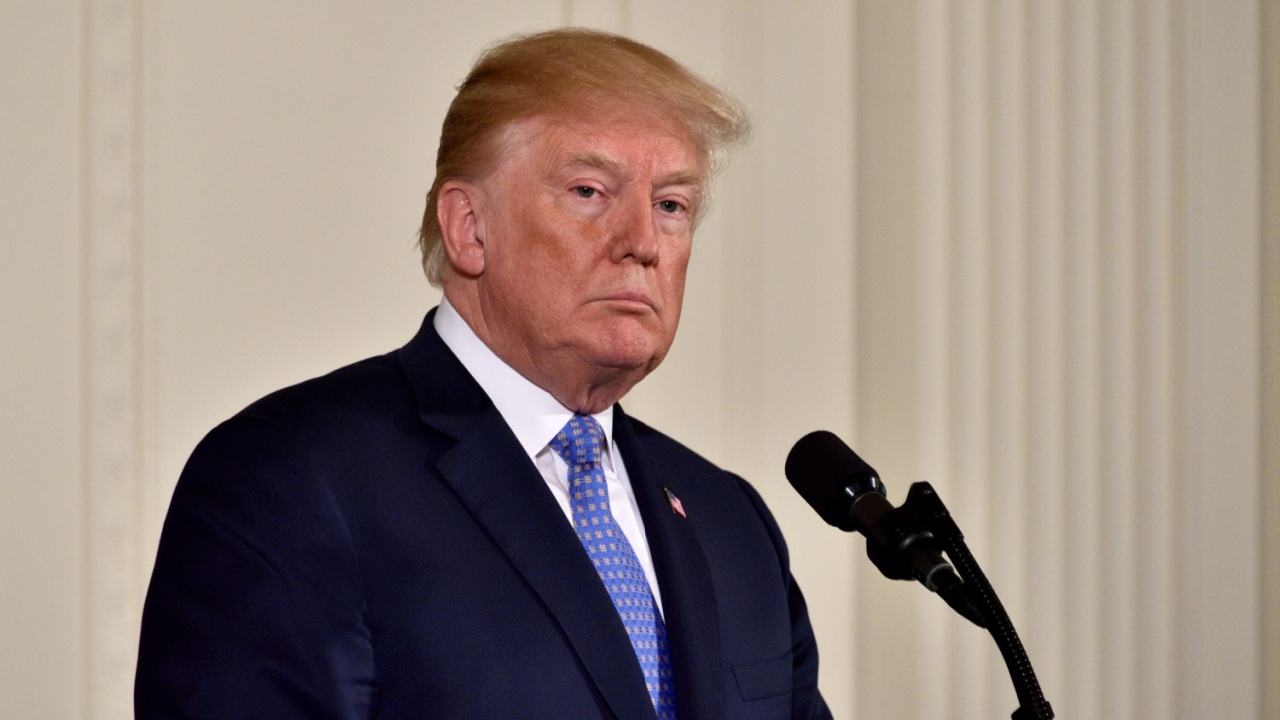
Why Donald Trump Might Reverse Course on Tariffs
With trillions of dollars vanishing from financial markets overnight, the president may have little choice but to make an uncharacteristic U-turn.
James Carville, Bill Clinton’s political advisor, famously said, “I used to think that if there was reincarnation, I wanted to come back as the president or the pope or as a .400 baseball hitter. But now I would like to come back as the bond market. You can intimidate everybody.” Had Mr. Carville seen yesterday’s violent stock market reaction to Donald Trump’s “Liberation Day” import tariff announcement, he might now want to come back as the stock market. It may be only a matter of time before Mr. Trump is forced by the stock market rout, which is now underway, to make a politically embarrassing tariff policy U-turn to stop the market’s hemorrhaging.
If the markets had ever given a thumbs down to an economic policy announcement, it would have to be yesterday’s 5 percent stock market swoon in reaction to Mr. Trump’s Rose Garden import tariff initiative. That was the largest one-day stock market decline since the 2020 COVID-19 Pandemic. While Mr. Trump might have thought that his reciprocal import tariff announcement would usher in a period of unparalleled economic prosperity and rapid manufacturing employment growth, the stock market evidently thought otherwise. Rather than the “golden age” economy that Mr. Trump had in mind, the market seemed to fear the risk of the dreaded combination of a global recession coupled with increased price inflation.
Unfortunately, there are all too many reasons to think that the market is right to be fearful of stagflation. One reason is that the imposition of import tariffs on many of our main trade partners is going to add substantially to the production costs of those companies like Apple and Nike that use inputs from those countries in their manufacturing processes. The same might be said of the earlier 25 percent steel and aluminum tariffs that will meaningfully increase the production costs of the many companies that have large steel and aluminum inputs.
Another reason for the market to fear a domestic recession is that Mr. Trump’s aggressive tariff action is bound to invite retaliation by our trade partners. Some of our main trade partners like Canada, China, and the European Union have already indicated that they intend to implement retaliatory measures. Those measures are likely to target politically sensitive parts of our export sector, not least in our country’s agricultural heartland. In turn, that could take us well down the path to the economically destructive beggar-thy-neighbor policies of the 1930s should Mr. Trump respond to those retaliatory measures in kind.
Mr. Trump’s tariff measures are also likely to complicate the Federal Reserve’s task of bringing inflation down to its 2 percent inflation target. Wall Street estimates suggest that the Trump tariffs could increase the Consumer Price Index by nearly 5 percent, while automobile analysts are warning that the tariffs could cause car prices to rise by several thousand dollars. A jump in prices will make it difficult for the Fed to resume its interest rate-cutting cycle anytime soon.
There is also good reason to think that Mr. Trump’s tariff action will trigger a recession in a number of our trade partners. The last thing that a Chinese economy struggling with the bursting of its housing market bubble needed was a 54 percent U.S. import tariff. Nor did the export-intensive Canadian and Mexican economies need a 25 percent import tariff from the country that accounts for roughly 80 percent of their exports. The same might be said of the German economy, which is already suffering from a two-year-old recession.
It seems that it has not been lost on market participants that over 30 percent of the S&P 500’s overall revenues are derived from abroad. This means that an overseas economic recession will crush those companies’ bottom lines. Nor has it been lost on the market that the chaotic way in which Mr. Trump conducts trade policy has been causing a worrying plunge in both household and consumer confidence.
Mr. Trump keeps emphasizing that he has a high tolerance for temporary economic pain in order to make the fundamental changes that he believes are so necessary for long-term economic growth. However, it is doubtful that he will hold his nerve for long if the market keeps wiping out literally trillions of dollars of household wealth. We must hope that Mr. Trump makes a trade policy U-turn soon before the stock market slump itself inflicts a body blow to the U.S. economy.
Desmond Lachman is a Senior Fellow at the American Enterprise Institute. Previously, he served as a deputy director in the International Monetary Fund’s Policy Development and Review Department and the chief emerging-market economic strategist at Salomon Smith Barney.
Image: Evan El-Amin / Shutterstock.com.